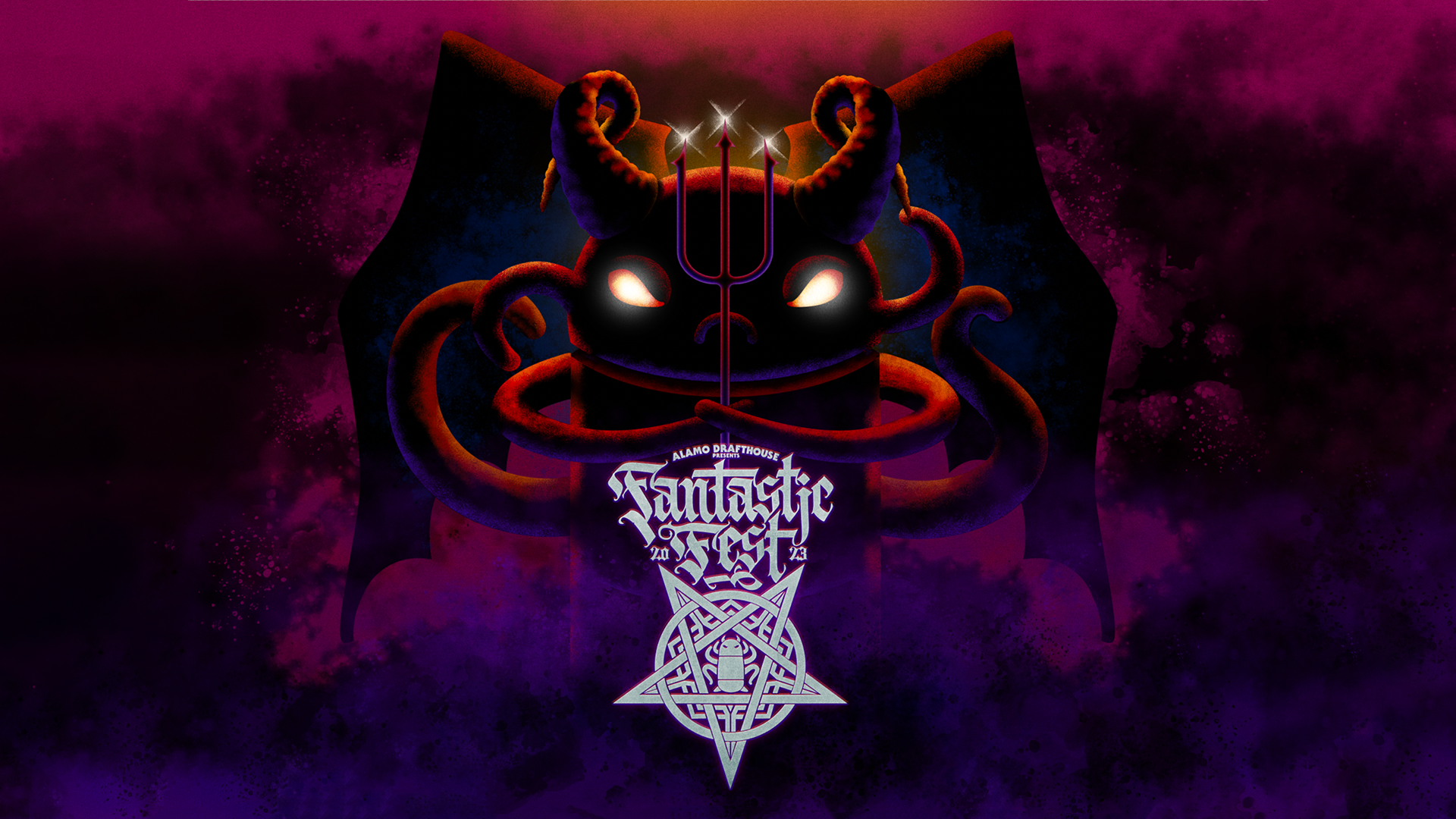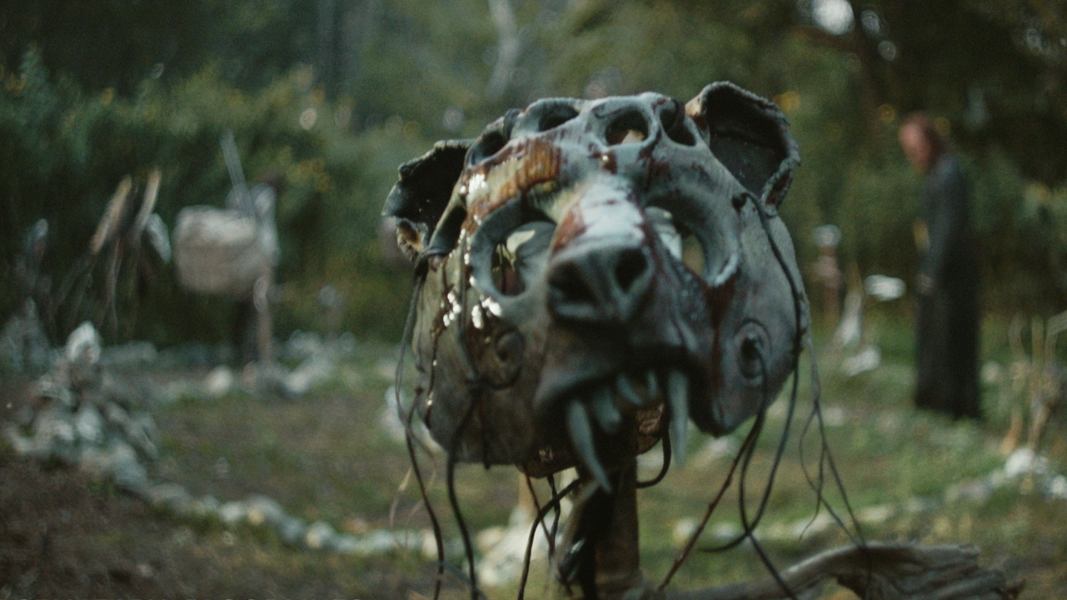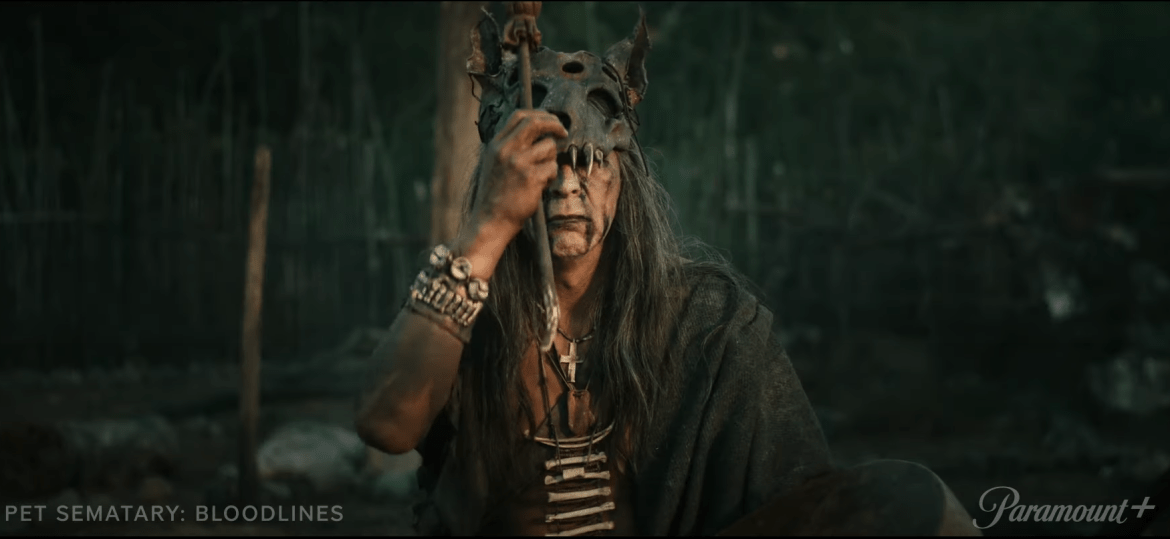


Sometimes, dead is better. Or so Stephen King told us thirty squirty years ago when he first published Pet Sematary, the novel that was marketed as a work so scary that it scared the master of horror himself. Since then, we’ve gotten three films based on the book, with Paramount Pictures having just released Pet Sematary: Bloodlines as the fourth film. Apparently, dead isn’t better, as the work continues to be plumbed for new cinematic material. There was a new adaption of the book released a few years back which was at best received lukewarm reviews, and now we have this next chapter sauntering onto the streaming service like Church the cat himself: lean, mangy, and full of promise to be nastier than the prior adaption.

Bloodlines is a loose adaption of the tragedy of Timmy Baterman, an anecdote about a local boy whose father buried him at the Micmac burial ground after being killed in World War II that Jud Crandall relates to Louis Creed in the novel when he rightfully suspects Louis is thinking of doing the same with his son Gage. In 1969, Jud is fresh out of high school and ready to join the Peace Corps with his girlfriend Norma when he finds out his childhood friend Timmy is back from Vietnam. However, when Jud goes to visit Timmy, he finds him distant and strange. His father Bill is cagey and defensive on the details of Timmy’s return, hostile towards Jud and his family for their pacifism. Soon, its revealed that Timmy was killed in Vietnam and his father took him out to the Micmac burial ground to be resurrected, and thus Jud and the others are forced to confront the evil that’s been festering out past Little God Swamp for centuries.

Rather than a direct adaption of the Timmy Baterman story, writer and director Lindsey Anderson Beer took the bare bones of the story and built something just different enough from said story to make it even more interesting. As a lifelong fan of King, I’ve always wanted to know more about the mythos the Micmac burial ground, and in that sense Beer delivers. Without giving too much away, Beer focuses on a central aspect of the Micmac story and brings it to the forefront of the film. And, unlike prior adaptions of the novel, Beer dives deep into the concept of those interred in the burial ground coming back as something other. In the novel, Timmy Baterman is described as simply a conduit for something else to wreak havoc in Ludlow, a puppet for whatever ancient evil dwells out there. Jack Mulhern plays Timmy for the most part with restraint, at times delivering lines as if he’s unaware of what he’s saying or where the words are coming from. Similarly, Mulhern is depicting a character that is essentially lost. His Timmy is one that died in Vietnam, and whatever we see in this film is simply something else. The burial ground is much more present than in other adaptions, with Beer making it almost something of an offscreen character for much of the film. She depicts it as something conscious and actively working to corrupt those who encounter it, unlike in prior adaptions where it was mostly just an avenue to bring dead people back to life and they were the source of horror. Likewise, by tying the history of Ludlow intimately to the discovery of the Micmac burial ground, Beer’s version of the town is something akin to King’s Derry, or ‘Salem’s Lot, towns that are not merely abreast to some ancient and awful thing but exist with said awful thing in their midst. It’s a subtle change, but Beers uses it quite well to expand upon a history only hinted at in the source material.

Mulhern’s Timmy Baterman isn’t the only solid performance in this film. Forrest Goodluck and Isabella LaBlanc as siblings Manny and Donna have amazing chemistry together and represent the easy to fuck up indigenous aspect of the story. Rather than cardboard cutouts of indigenous people or even worse examples of the “magical native American” trope that reveals the truth to hapless Caucasians, the siblings in this are just as fucked and clueless as everyone else. Sure, Lablanc’s character speaks of having nightmares and feeling like there’s something awful lurking in the woods and through Timmy, but there’s no awkward moment where an indigenous character just drops in and gives the rest of the cast some hidden knowledge to help them defeat the evil. Henry Thomas and Jackson White as father and son Dan and Jud Crandell shoulder most of the emotional weight of the film, with White being so likeable it’s sad remembering that fifty or so years after the film takes place his character is going to be stabbed to death by a resurrected toddler. He does a fantastic job of bringing to life a charter member of the Good Dudes In Bad Places Club that Stephen King has cultivated over the years: characters like Dick Halloran, Glen Bateman, Matt Burke, and Ralph Roberts (and heck why not have two guys from Pet Sematary and add Victor Pascow to the bunch). This is a young, idealistic Jud, someone who hasn’t been yet curdled by their proximity to the Micmac burial ground. And while White’s depiction often veers into the realm of aw-shucks style naivete, his performance is nonetheless endearing.

The choice to move the timeline of the story into the tail end of the Vietnam War gives us some interesting moments. Beer isn’t shy about comparing people who come back from the dead to soldiers suffering from PTSD. Much of Timmy’s mannerisms are initially chalked up to such suffering. Even when he’s quoting a character’s fathers suicide note back to them, the initial lines about no place feeling like home sound like something a war-torn soldier would utter upon coming home. Similarly, for much of time on screen Timmy has the look of a man who has seen and done unspeakable things and is unable to cope with such things. This could go in either direction to his PTSD or his resurrection. Jud and his family’s initial evaluation of Timmy “not being the same” is not an unreasonable one in the face of soldiers coming back home from the conflict.

The film is not without its shortcomings. It makes some confusing choices when it comes to exposition; namely, it opens with a rather clunky introduction to the mythos of the Micmac burial ground. Likewise, while I absolutely appreciate that the filmmakers chose to avoid an indigenous person explaining what was happening, that info coming from a priest that Jud and Manny find literally spilling wine all over himself in a church is almost eye-rollingly cliched. The story he relates itself is fascinating; but to hear it from a a walking caricature of an Irish priest felt almost like a cop-out. Jack Mulhern does a great job of conveying to the viewer non-verbally that there’s something horribly wrong with Timmy, but some of his dialogue is woefully one dimensional. But my biggest gripe with this film (aside from the absolute lack of classic Stephen King backwoods Maine accents, that is. Give me one ‘ayuh’ and I’ll be happy!) is the tragic lack of David Duchovny flexing his acting muscles on us. Not that this performance was bad, but it felt like he could’ve really done a lot with the role of a grieving father who has evoked an ancient forest spirit to bring his dead son back to life and is now struggling with the implications of doing so. We’re given one small maybe thirty second shot of Duchovny weeping over what he has done, and while he absolutely does convincingly depict a man suffering from the double whammy of losing a child and spitting in the face of the natural order to bring him back, I feel like there could’ve been some truly great moments in this film based on that.
So, all this to say, if you go into watching film expecting a prologue that will seamlessly blend in with Mary Lambert’s classic adaption of it, you will be disappointed. This is not a young Fred Gwynne warning us about how the soil of a man’s heart is stony or what have you. This is Beer’s own interpretation of a sequence in the original novel. So, if you can separate this film from Lambert’s, I think you’ll enjoy it.




